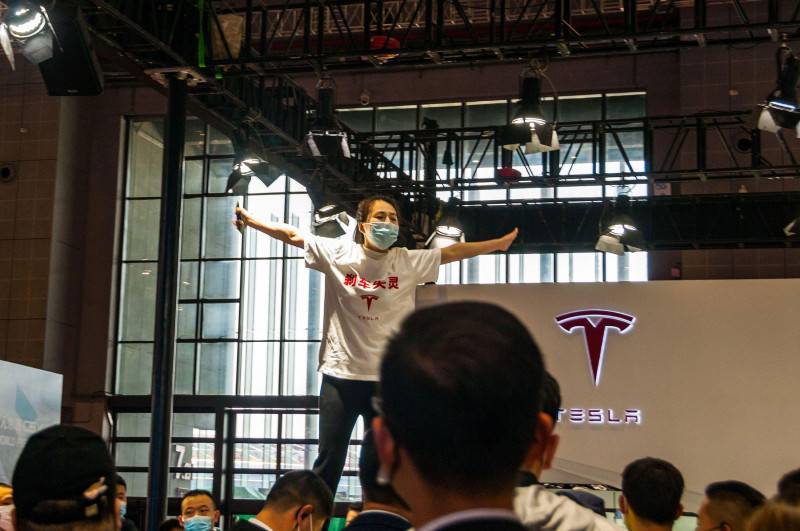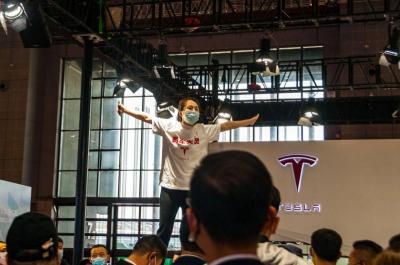Huang Jiachao, a businessman from Wenzhou in eastern China, was happy when he acquired a Tesla Model 3 late last year. The car looked good, was environmentally friendly, and was made locally from Tesla’s massive Shanghai factory, which is headquartered in California. However, he sold it last May, recovering only about 75% of the price he paid, which was 249,900 yuan (approximately $38,600). Huang cited reports on Chinese social media about brake failures in the company's vehicles, which Tesla strongly denied, stating, “I made that decision out of safety concerns.” He added, “After reading about it every day, I became scared to drive.”
There is little concrete evidence, and indeed no evidence at all, regarding any defects in the brakes of Tesla vehicles manufactured in China. Yet, it is clear that Elon Musk's wonderful honeymoon in the world's most populous country has ended. After receiving special treatment from government officials, who granted Tesla an unprecedented privilege allowing it full control over its local branch, the automaker is now compelled to rethink its strategy—from customer service to public relations—in a market critical to Musk's long-term ambitions.
The comprehensive reform came in response to an unusual degree of attention from regulatory agencies in China, as well as a series of negative media coverage and online criticism. Last month, the Chinese government ordered a recall of nearly all the cars Tesla had sold in the country—numbering over 285,000 vehicles—to address a software defect. At the same time, the company’s vehicles were banned from certain government facilities due to concerns about their ability to send data to the U.S. Local automakers like Nio and Xpeng pose strong challenges to Tesla's dominance, gaining consumers with their increasingly modern designs.
Of course, these issues are not new for most foreign companies operating in China, where consumer perceptions often crumble after a wave of criticism on social media. However, the turning point here may be that Tesla's high-tech aura and Musk's star power are no longer sufficient to protect the company from the risks others face there. It also appears that the firm misjudged the strength of its relationships with the country’s leadership—an error that could threaten Tesla's growth prospects in its second-largest market and serves as compelling evidence of how difficult it is to operate in China, even for those who seem to have every possible advantage.
Bill Russo, former CEO of Chrysler and now CEO of Automobility, a Shanghai-based consultancy, stated that Tesla's experience is a “wake-up call” the company needs to ensure it remains in control and does not become overly complacent about its success. He added, “You cannot lead by too great a margin, to the point that you become arrogant in how you operate.”
This is especially true amid the ongoing deterioration of relations between the U.S. and China, with disputes between the two superpowers over everything from Taiwan's status to semiconductor supply chains. Beijing’s previous kindness towards Tesla—which included substantial assistance in building its facilities in Shanghai and facilitating a swift reopening after the nationwide COVID-19 lockdown—came at a time when Chinese policymakers were eager to demonstrate that they remained open to international business. However, with China's borders now closed, and the Biden administration clarifying that it views China as a long-term strategic competitor, that urgency may no longer carry the same weight.
Signs of a firmer stance towards Tesla emerged early last February when agencies, including the State Administration for Market Regulation—the most critical market monitoring body in China—summoned executives to discuss what they termed quality and safety issues in Tesla cars, including reports of unnatural acceleration and battery fires. After the meeting, Tesla issued a statement that was so atoning it almost felt like groveling, announcing that it “sincerely accepted the guidance of government departments” and would “strenuously ensure adherence to resolve shortcomings.”
For those who believed that Tesla's response would prevent consumer complaints from turning into a major story, disappointment soon followed. At the Shanghai Auto Show in April, a woman claimed that a brake failure in her Model 3 caused an accident, resulting in the deaths of nearly four family members. She staged a solo protest at a Tesla booth, standing on top of a car while wearing a shirt inscribed in Chinese with “Car brakes failed,” before being escorted away by security. However, the woman’s presence at the heavily guarded event, which required advance ticket purchases, and the fact that her photos were circulated freely on social media, led industry observers to wonder if officials were covertly supporting her actions.
Tesla's initial reaction was defensive, with Grace Tao, head of external relations, indicating that the woman had been manipulated emotionally by others. The company stated that data from the car showed it was functioning normally at the time of the accident. But as online criticism escalated and state-run media called for the automaker to reconsider its response, Tesla was forced to revise its reaction and issue an official apology while providing detailed information to the protesting woman.
Tesla has also begun attempting to reshape its image among consumers. The company used to focus on state-run media, but it is now trying to build relationships with automotive magazines and influencers on platforms like Weibo and WeChat by inviting them on factory tours and conducting group “discussion sessions” with policymakers, consumers, and media. According to insiders, Tesla has also lodged complaints with the government regarding what it views as unwarranted social media attacks, requesting that Beijing use its regulatory powers to ban some posts.
At the same time, sources familiar with the strategic shift indicated that the comprehensive reform has led Tom Zhu, Tesla's Chinese CEO, to take a more proactive approach in the company's dealings with the outside world. Zhu, a technical specialist who originally joined Tesla to build its charging network in mainland China, has relatively little experience in public relations or government and had mostly focused on production and sales during his tenure. Now, as confirmed by knowledgeable people, Zhu has become the principal decision-maker regarding communications issues, requesting reviews of press releases on important topics that attract public attention before they are published.
A representative for Tesla in China declined to comment on this story.
It is unclear what impact the brake dispute and other Chinese nuisances have had on Tesla's sales. The decision made last month to recall the company's vehicles—to upgrade software aimed at preventing drivers from unintentionally activating the cruise control, which could cause sudden acceleration—might make consumers feel apprehensive. Following the auto show protest, JL Warren Capital estimated that this dispute led to a 50% drop in new orders over several weeks, based on observations of customer foot traffic at dealerships, which logically and evidently results in decreased demand. If this is accurate, it may be premature to see this decline reflected in official figures. While Tesla's Chinese shipments rose by nearly 30% in May—largely attributed to increased demand for the Model Y SUV—these statistics reflect orders made several months earlier.




